Arlene Miller's Blog, page 27
November 6, 2020
It’s “L” Ementary: Confusing Words That Begin with “L”
 Image by DavidRockDesign from Pixabay
Image by DavidRockDesign from PixabayHope you enjoyed the “candy” post last week! Now back to serious stuff! Here are some confusing words that begin with L:
1 Last/Latest – Last is the final one. Latest is the most recent one.
I am on the last page of my book. This is the latest book I have read by this author.
2. Later/Latter – Later is some time in the future. Latter is the last item you just mentioned.
I am going shopping later today. I have three dogs and a cat; I have owned the latter for 15 years!
3. Lay/Lie – Here we go again! Lay needs a direct object; lie does not. In other words, you must lay something somewhere.
Lie on the sofa for a while. Lay your coat on the bed.
The further problem is the past tense and past participle (present perfect tense).
The past tense of lie is lay! The past tense of lay is laid:
Yesterday I lay in the sun for four hours. I laid my blanket on the sand.
The present perfect tense of lie is lain. The present perfect of lay is laid.
I have lain in the sun every day this week. I have laid my blanket right near the water every day.
4. Lead/Led – Lead is the present tense of the verb. Led is the past tense. What is in your pencil is lead, the noun.
Please lead us in the song. I led the parade down the avenue. I need more lead in my pencil.
5. Lend/Loan – Generally, lend is a verb. Loan is the noun. Often, loan is used as a verb, but technically lend is the verb.
I can lend you (not loan) you some money. Can you get a loan from the bank?
6. Liable/Libel – Liable is legally responsible. Libel is writing something about someone that damages their reputation.
You are liable for the items in this store if you break one. He is being sued for libel after the newspaper article he wrote.
7. Libel/Slander – Libel is writing something about someone that damages their reputation. Slander is the same, but is spoken and not written.
The malicious and false newspaper article is libelous. His speech slandered some local officials.
8. Licence/License – Same word with different spellings. Apparently some dictionaries list both spellings, but license is the common spelling. To spell it correctly, just remember that the C comes before the S, just as in the alphabet.
9. Lightening/Lightning – I used to get this one confused — or I just never thought about it. Lightening is making something lighter in color or in weight. Lightning is the scary stuff that precedes thunder.
I am lightening my hair at my net salon appointment. My dog is afraid of thunder and lightning.
10. Loath/Loathe – Loath is an adjective meaning unwilling. Loathe is a verb meaning t intensely dislike.
I am loath to tell her the truth about her boyfriend. I loathe sushi!
11. Loose/Lose – Loose is an adjective, the opposite of tight. Lose is a verb meaning to misplace something.
My pants are too loose, so I am returning them to the store. Did you lose these sunglasses?
October 30, 2020
Trick or Treat! Some Candy Trivia
 Image by skeeze from Pixabay
Image by skeeze from PixabayI don’t know about you, but when I think of Halloween, I don’t think about pumpkins and goblins — I think about candy. And when I got too old to go out with a pillowcase and get my own candy, I stole from my kids’ candy bags (didn’t you????). I loved candy more than they did – I probably still do. I would just take a piece at a time, hoping they wouldn’t notice.
What is your favorite candy? Of course I love chocolate, mostly dark chocolate. Nothing is better than dark-chocolate-covered creams, especially orange and raspberry, and maybe lemon. I also love Reese’s Peanut Butter Cups (even though mostly they are milk chocolate) and Junior Mints. Right now I don’t eat candy, but when I do, my favorites are basically sugar: candy corn, Good and Plenty, and jelly beans. Yeah, I know: you either love candy corn or you hate it, and it seems that most people hate it, but I could eat it by the bag.
Whether or not you have bought any candy for this Covid-Halloween, I thought you might be amused and intrigued by some dandy, candy trivia:
Favorite Halloween Candy – Depends on the state you live in. Candy corn is the favorite in Alabama, so perhaps I should move there! But Reese’s Peanut Butter Cups, Milky Way, and M&Ms are popular everywhere.
Reese’s Peanut Butter Cups – This candy was named after its originator, Harry Burnett Reese.
Candy Corn – The Goelitz brand of candy corn has been around since 1898. It was originally called “chicken feed,” which I am sure some people would prefer to call it now. In 2001 the company changed its name to Jelly Belly. By the way, the Jelly Belly factory is in California. They have a wonderful tour with lots of samples, and they sell bags of irregular (rejected) jelly beans for cheap — they are called Belly Flops. By the way, an opened bag of candy corn can last for three to six months. In my house it can stay for only minutes before it is gone, but I know many people would say it doesn’t matter how fresh or stale it is, it tastes the same.
Candy Cigarettes – I don’t think these have been around for a long time, but they were around when I was a kid. However, North Dakota banned these candies from 1953 to 1969 because they thought the candy would encourage kids to smoke cigarettes.
Tootsie Rolls – Every day 64 million Tootsie Rolls are made.
Tootsie Roll Pops – It takes a licking machine 364-411 licks to get to the chocolate center of a Tootsie Roll Pop. But it takes a human only 144-252 licks. I am assuming the machines are for quality assurance!
Snickers – This candy bar was named after Franklin Mars’ deceased racehorse. The horse was raised at the family farm in Tennessee; the farm was called The Milky Way.
Cotton Candy – This candy was created by a dentist (!), William Morrison, along with confectioner John C. Wharton. It was originally called Fairy Floss until the name was changed to cotton candy in the 1920s.
M&Ms – The two Ms stand for Forrest Mars and Bruce Murrie, who developed and financed them.
 Image by Richard Manship from Pixabay
Image by Richard Manship from PixabayJunior Mints – This candy was named after the Broadway play Junior Miss, which ran from 1941 to 1943.
Three Musketeers – This candy bar was so named because originally it featured pieces of chocolate, vanilla, and strawberry candy. However, during World War II, vanilla and strawberry were hard to find, so they went with just chocolate.
Peeps – (Yuck) – Before automation, it would take 27 hours to make a Peep. It now takes 6 minutes, and 5.5 million of them are made in their Pennsylvania factory every day. (Does all candy come from Pennsylvania? Hershey does.)
White Chocolate – Doesn’t even taste like chocolate to me. And why? Because it isn’t really chocolate and contains no cocoa solids at all.
Care for Some Wine? – Wine experts recommending pairing the following candies and wines: Whoppers with Cabernet, Reese’s Peanut Butter Cups with Sherry, and Hershey Kisses with Zinfandel.
How Much Candy Is Too Much? – According to the American Chemical Society, eating 262 fun-size Halloween candy bars would poison a 180-pound person.
Have a Happy and Safe Halloween! Don’t forget your mask!
Thank you to this website for the fun info!
October 22, 2020
Nym Nym Nym . . . and Nym
 Image by StarzySpringer from Pixabay
Image by StarzySpringer from PixabaySynonym, homonym, antonym, contronym, metonym, toponym, eponym. . . . we have talked about these in past posts. Here are four new ones for you:
Hyponym – A word of more specific meaning than a general term applicable to it. For example, spoon is a hyponym of cutlery. Here are some more:
Monkey is a hyponym of animal.
Rose is a hyponym of flower.
Shirt is a hyponym of clothing.
You get the picture! Easy one.
Autonym -Well, auto means self. Autonym is a name given to an individual or group by themselves, rather than by anyone outside. For example, Deutsche is the autonym of the people known in English as Germans. Often autonym is used to refer to an author who uses their own name rather than a pseudonym on their books.
Euonyn – A name well suited to the person, place, or thing named. Here are some examples:
Charity for a woman who gives her time and money
Dr. Cutt for a surgeon
Michael Fast for a an Olympic runner
Caconym -A bad word, bad for whatever reason—badly constructed, insulting, ugly, etc. As autonyms and euonyms, many times caconyms are present in biology and botany. Caconym seems to be the opposite of euonym. Here are some non-scientific examples:
Naming a baby Nancy when your last name is Fancy
A child whose name is Willard W. Walkington the 5th
A perfume named Stinko
A short one today….next week, something for Halloween!
October 16, 2020
Do “I” Have a Quiz for You!
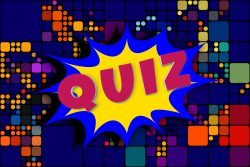 Image by Gerd Altmann from Pixabay
Image by Gerd Altmann from PixabayLast week we talked about confusing words that begin with I. Here is the quiz….
1 I am not sure (if, whether) I will walk or ride my bike to the lake.
2. One of the (indexes, indices) in this book has a few typos.
3. When she was talking about taking the exam again, I (inferred, implied) she had failed it the first time she took it.
4. (In regard to, In regards to) your e-mail, I completely disagree with your plans.
5. I hope the new drapes I bought are (inflammable, nonflammable).
6. The poor, starving dog I adopted ate all (its, it’s) food in about two seconds.
7. I find it (intolerable, intolerant) that the neighbor’s dog barks all night.
8. She (could, couldn’t) care less if she ever sees her ex-fiance again.
9. I hate being (idle, idol), so I have developed many hobbies.
10. I just turned by ballot (into, in to) the dropbox outside the Veteran’s Building.
11. He (inferred, implied) that he would be moving out of California to go to college.
12. (Incidentally, Incidently), I saw you walking downtown last week, but I was in too much of a hurry to say hi.
13. Those kids look as if they might be trying to (incite, insight) some trouble.
14. I don’t know (if, whether) I should go or not.
15. I let my car (idle, idol), so I could leave the air conditioning on for the dog.
16. Pour the dry ingredients (in to, into) the bowl with the wet ingredients.
17. My favorite part of the book is (when, where) they find the body in the snow.
18. I often ask her opinion because she has good (incite, insight) into people.
Please scroll down for the answers:
Almost
Almost
Almost
Almost
You’re here!
1 I am not sure (if, whether) I will walk or ride my bike to the lake.
2. One of the (indexes, indices) in this book has a few typos.
3. When she was talking about taking the exam again, I (inferred, implied) she had failed it the first time she took it.
4. (In regard to, In regards to) your e-mail, I completely disagree with your plans. (Either one if correct. “Regards” is more formal.)
5. I hope the new drapes I bought are (inflammable, nonflammable).
6. The poor, starving dog I adopted ate all (its, it’s) food in about two seconds.
7. I find it (intolerable, intolerant) that the neighbor’s dog barks all night.
8. She (could, couldn’t) care less if she ever sees her ex-fiance again.
9. I hate being (idle, idol), so I have developed many hobbies.
10. I just turned by ballot (into, in to) the dropbox outside the Veteran’s Building.
11. He (inferred, implied) that he would be moving out of California to go to college.
12. (Incidentally, Incidently), I saw you walking downtown last week, but I was in too much of a hurry to say hi.
13. Those kids look as if they might be trying to (incite, insight) some trouble.
14. I don’t know (if, whether) I should go or not.
15. I let my car (idle, idol), so I could leave the air conditioning on for the dog.
16. Pour the dry ingredients (in to, into) the bowl with the wet ingredients.
17. My favorite part of the book is (when, where) they find the body in the snow.
18. I often ask her opinion because she has good (incite, insight) into people.
Stay safe!
October 9, 2020
“I” Have More Confusing Words for You!
 Image by Gerd Altmann from Pixabay
Image by Gerd Altmann from PixabayWe continue on with the series of confusing words with the letter I:
1 I could care less – I think we all know by now that the correct phrase is I couldn’t care less. If you could care less, that means you care. However, the phrase implies you don’t care at all.
2. Idol/Idle – An idol (noun) is someone you look up to. Idle (adjective or verb) means not doing anything.
Her older brother had always been her idol.
I am usually idle on Saturday, which is my day of relaxation.
3. If/Whether – If is often used when whether should be used. If is conditional. Whether implies a choice. If or not appears in the sentence, use whether.
I am not going hiking if it rains.
I don’t know whether I should drive or fly. (not if I should drive or fly)
4. Imply/Infer – We are still getting this one confused. Think of the words as going in opposite directions. To imply is to suggest something without coming out and saying it directly. It goes from you out to others. To infer is to assume something from information you are hearing. It comes to you from someone else.
I implied to her that I probably would not be attending her party.
She inferred from what I said about being busy that I would not attend her party.
5. In regard to/In regards to – Both are fine. In regard to is preferred. In regards to is more formal.
6. Into/In to – This one does make a difference.
I poured the wine into the glasses.
I turned my overdue book in to the library.
I turned my overdue book into the library. (No. Unless you performed magic and turned your book into a library

October 2, 2020
Metonyms and Other Nyms
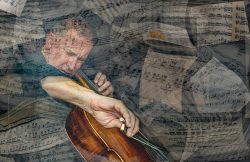 Image by Ri Butov from Pixabay
Image by Ri Butov from PixabayA few weeks ago, we talked about contronyms. Contronyms are words that mean two opposite things, for example, sanction, which can mean to allow or to boycott. We all know about antonyms (opposites), synonyms (same meaning), and homonyms (sound the same), but there are many other words that end in -nym. We will talk about a few of them today.
Metonym –A word, phrase, place, or expression used as a substitute for something. For example, when we say Washington, we often mean the United States government:
There is a lot going on in Washington these days.
I quit that job because there was too much going on around the water cooler. (Water cooler implies some place where there is gossip.)
That looks like a Beverly Hills house to me. (fancy house such as you would see in Beverly Hills).
Is the Pentagon planning something? (refers generally to the Department of Defense).
Metonyms do resemble metaphors. Metaphors are more based on similarity; metonyms are based on association.
Toponym – A toponym is simply the name of a place: Boston, Foggy River. However, there are different types of toponyms. Here are some of them.
Descriptive – The Rocky Mountains, Grass Valley
Associative – Mall Road (there is a mall on the street)
Incident – Battle River
Commemorative – St. Louis
Manufactured – Ytic (city spelled backwards)
Mistaken – West Indies (historic errors)
Shifted – Athens, Texas ; New England; Rome, New York (names taken from elsewhere)
Eponym – An eponym is a person (real or fictional) for which something or someplace is named. Here are some examples.
Walt Disney – Disneyland
Achilles – Achilles heel
Adonis – a handsome male
Jonas Salk – Salk vaccine
Charles Boycott – boycott
Robert Bunsen – Bunsen burner
Christian Doppler – the Doppler effect
J. William Fulbright – Fulbright scholarship
Dr. Jekyll and Mr. Hyde – Jekyll and Hyde personality (or split personality
Those last ones are fun and there are “zillions” of them!
Note: Someone recently told me that they comment on my posts frequently, but they never receive a reply. I am led to believe that you don’t get any kind of e-mail notification that I have responded. However, I want to let you know that I respond to every single comment I get; I guess you have to return to the blog posts to see the replies. Perhaps there is some type of setting, but I don’t know what it is. I will look into it.
Next Week – Back to confusing words….
September 25, 2020
Gee Quiz!
 Image by Shahid Abdullah from Pixabay
Image by Shahid Abdullah from PixabayLast week we talked about the often confused words that begin with G and H. Time to take the quiz!
1 I feel quite (good, well) after having Covid for the past two months.
2. I believe him because his story (gibes, jibes) with his wife’s.
3. During the pandemic, you should stay away from (hoards, hordes) of people!
4. I watched the hummingbirds as they (homed, honed) in on their favorite bushes.
5. Smoothies generally make a (healthful, healthy) breakfast.
6. Punctuated correctly? I passed my driver’s test, however, I nearly failed it!
7. Many, many years ago, her aunt was (hanged, hung) on suspicion of being a witch.
8. They used (guerrilla, gorilla) tactics to win the battle.
9. The teenager who worked at the deli replied, “We don’t (got, have) any pastrami today,” when I ordered a sandwich.
10. They marched (foreward, forward, forwards) in two parallel lines.
11. I like to (hoard, horde) candy in my desk drawer and then eat it every Friday.
12. That mean girl (gibes, jibes, jives) me about my choice of clothes at every meeting!
13. Did you do ( good, well) at your job interview?
14. Punctuated correctly? I don’t have a new job yet; however, I quit my old job.
15. I am (homing, honing) my skills as a cook.
16. Punctuated correctly? I will be in class, therefore, you don’t have to take notes for me.
17. Punctuated correctly? I am taking an Uber, however, so you don’t have to give me a ride.
18. Legumes, olive oil, and nuts are all (healthful, healthy) foods.
Scroll down for the answers.
More . . .
More . . .
More . . .
Answers:
1 I feel quite (good, well) after having Covid for the past two months. Either one is correct. Generally, we would use good after a linking/sense verb like feel, but well is correctly used as a state of health.
2. I believe him because his story (gibes, jibes) with his wife’s.
3. During the pandemic, you should stay away from (hoards, hordes) of people!
4. I watched the hummingbirds as they (homed, honed) in on their favorite bushes.
5. Smoothies generally make a (healthful, healthy) breakfast.
6. Punctuated correctly? I passed my driver’s test, however, I nearly failed it! No. Need a semicolon or period after test.
7. Many, many years ago, her aunt was (hanged, hung) on suspicion of being a witch.
8. They used (guerrilla, gorilla) tactics to win the battle.
9. The teenager who worked at the deli replied, “We don’t (got, have) any pastrami today,” when I ordered a sandwich. Well, trick question. Although have is correct, this is a quote, and the teenager may have said got! (nothing against teenagers – cold have been anyone!)
10. They marched (foreward, forward, forwards) in two parallel lines.
11. I like to (hoard, horde) candy in my desk drawer and then eat it every Friday.
12. That mean girl (gibes, jibes, jives) me about my choice of clothes at every meeting! Either spelling is okay.
13. Did you do ( good, well) at your job interview?
14. Punctuated correctly? I don’t have a new job yet; however, I quit my old job. Yes.
15. I am (homing, honing) my skills as a cook.
16. Punctuated correctly? I will be in class, therefore, you don’t have to take notes for me. No. You need a period or semicolon after class.
17. Punctuated correctly? I am taking an Uber, however, so you don’t have to give me a ride. Yes. If you take out however, you still have a correct sentence, so commas are fine.
18. Legumes, olive oil, and nuts are all (healthful, healthy) foods. But they might make you healthy!
Next week: A little break from confusing words with more –nyms!
September 18, 2020
Gee Whiz (and H Too)!
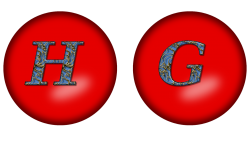 Image by Robert Maciołek from Pixabay
Image by Robert Maciołek from PixabayIs it gibe? Or jibe? Is that even a word? Or jive? Isn’t that a dance?? Find out below in this installment of confusing word pairs and groups — G and H words.
Gibe/Jibe/Jive – Gibe is a verb or noun meaning to taunt (or a taunt or sarcastic remark). However, it can also be spelled jibe. Jibe, however, does have another meaning, its most common one: to agree with or be in harmony with. And yes, jive is a type of early jazz music, or a ballroom dance.
The bully would gibe me every day on my way home from school.
Her story jibes with his, so I believe it to be true.
Jive was popular when my mom was a kid, and she still loves it.
Good/Well – This again? Good is an adjective. Well, is an adverb. So, good is used to describe nouns, generally, and well is used modify verbs: She is a good baby. I did well on the test. There are a couple of exceptions: After verbs of sense or being, we use adjectives – It tastes good. And well can be used to define a state of health – I feel well.
You did a good job on the project.
You did well on that project.
That project looks good.
Gorilla/Guerilla – Gorillas are at the zoo. Guerilla is a type of warfare usually featuring fast-moving, small-scale actions.
My son’s favorite part of the zoo was always the gorilla exhibit.
The small terrorist group used guerilla tactics.
Got/Have – Got is the past tense of get, to receive something. It isn’t used instead of have, which means to own or possess something. We don’t got any is incorrect. The correct sentence is We don’t have any.
Every year I get a new doll for my birthday. Last year I got a doll from Argentina.
I don’t have any money. Do you have any?
Hanged/Hung – These words are both past tenses of the verb hang, but are not interchangeable. Hanged is used only when there is a noose involved.
He had tried committing suicide with pills, but then he finally hanged himself.
I hung my new painting in the living room.
Healthful/Healthy – Who uses healthful, anyway? Most of the time we (or at least I) just use healthy for everything, but there is a distinction. Healthful refers to something that provides you with good health, such as kale. Healthy refers to possessing good health.
I drink a healthful smoothie every morning for breakfast.
I exercise and eat right to stay healthy.
Hoard/Horde – Both words deal with quantity, but in different ways. To hoard is to save things, sometimes secretly. Hoard as a noun is a collection of things. A horde is a large group of people.
She hoards chocolate and hides it under her bed.
Hordes of people stood in line to vote.
Home/Hone – Home is where you live — or to return to where you live or to familiar surroundings, as a verb. Hone is to improve or sharpen a skill.
The hot air balloon eventually homed in to the general location from where it took off.
Over time she honed her baking skills until she could make any cake you asked for.
However – Obviously, we don’t have any trouble using however in the correct place. However, do you ever need a semicolon before it rather than just a comma? Yup. How do you know? Well, if it appears at the beginning of your sentence, you follow it with a comma. If it appears in the middle of your sentence, it could require a semicolon before it rather than just a comma. How do you know? Take out your however. Do you now have a complete sentence? Or, do you have two sentences? If you have a complete sentence on each side of the however, you need a semicolon (or even a period).
You can call me; however, I usually don’t answer the phone.
You can call me. However, I usually don’t answer the phone.
I will, however, answer the phone if I know it is you calling.
Next week, we will do the quiz on these words (with a few more thrown in for good measure).
Remember the post about contronyms? Well, in two weeks, I will have more types of -nyms for you. Homonyms, synonyms, antonyms? They are old hat!
September 11, 2020
The “F” Quiz
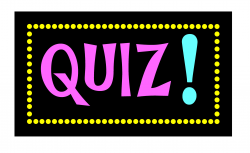 Image by Tumisu from Pixabay
Image by Tumisu from PixabayLast week we talked about confusing word pairs that begin with F. Here is the little quiz:
1 (Fewer, Less) people attended the parade than attended last year.
2. Everyone says she has a real (flair, flare) for fashion.
3. When I heard that joke, I (figuratively, literally) fell over laughing!
4. I hear they have great (fair, fare) at the county (fair, fare).
5. After she married Lawrence Vance Gill, she was (formally, formerly) known as Mrs. Lawrence V. Gill.
6. I grew up in Louisiana and then moved to Tennessee. I preferred the (former, latter).
7. My legs hurt so much that I cannot ride this bicycle any (farther, further).
8. All the (forth, fourth) graders go back and (forth, fourth) among three classrooms.
9. My uncle (found, founded) a private school in 1950.
10. I hope you bought (flammable, inflammable, nonflammable) face masks for the children.
11. We can discuss this (farther, further) after dinner.
12. First, add the dry ingredients together. (Second, Secondly), add the eggs.
13. I love that zoo because they have (flamencos, flamingos).
14. I am trying to get a famous scientist to write the (foreward, foreword, forword, forward) for my book.
15. With the new stop sign at the corner, I think there will be (fewer, less) accidents.
16. I (figuratively, literally) hit the ceiling when I saw that the dog had peed all over the rug.
17. I don’t like the candles anywhere near those curtains because they are (flammable, inflammable, nonflammable).
18. Please dress (formally, formerly) for her wedding.
19. I love Indian (fair, fare) when I dine out.
20. I think a big storm is (eminent, imminent) when I see that dark sky.
Scroll down for the answers:…
Keep scrolling
Keep scrolling
And scrolling
Keep going
And doing
Almost there
Almost
One more time…
1 (Fewer, Less) people attended the parade than attended last year.
2. Everyone says she has a real (flair, flare) for fashion.
3. When I heard that joke, I (figuratively, literally) fell over laughing! (if you really fell over, which is possible)
4. I hear they have great (fair, fare) at the county (fair, fare).
5. After she married Lawrence Vance Gill, she was (formally, formerly) known as Mrs. Lawrence V. Gill.
6. I grew up in Louisiana and then moved to Tennessee. I preferred the (former, latter). Who knows? You cannot tell from the sentence!
7. My legs hurt so much that I cannot ride this bicycle any (farther, further).
8. All the (forth, fourth) graders go back and (forth, fourth) among three classrooms.
9. My uncle (found, founded) a private school in 1950.
10. I hope you bought (flammable, inflammable, nonflammable) face masks for the children.
11. We can discuss this (farther, further) after dinner.
12. First, add the dry ingredients together. (Second, Secondly), add the eggs.
13. I love that zoo because they have (flamencos, flamingos).
14, I am trying to get a famous scientist to write the (foreward, foreword, forword, forward) for my book.
15. With the new stop sign at the corner, I think there will be (fewer, less) accidents.
16. I (figuratively, literally) hit the ceiling when I saw that the dog had peed all over the rug. (unless you really did hit the ceiling!)
17. I don’t light candles anywhere near those curtains because they are (flammable, inflammable, nonflammable). (either one; they are synonymous)
18. Please dress (formally, formerly) for her wedding.
19. I love Indian (fair, fare) when I dine out.
20. I think a big storm is (eminent, imminent) when I see that dark sky.
GRAMMAR DIVA NEWS
I will have an article in this coming Monday’s blog on Joel Friedlander’s site https://www.thebookdesigner.com/ The article is called “Grammar and Our Changing Society.” Please check it out on Monday!
I will be talking about grammar next Friday, September 18, on the National Association of Memoir Writers teleseminar with Linda Joy Meyers. Please tune in!
September 4, 2020
The “F” Words
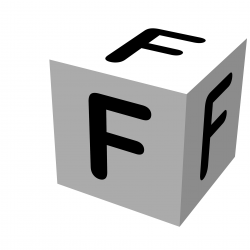 Image by Pete Linforth from Pixabay
Image by Pete Linforth from PixabayOh, sorry, not those “F” words….
This post continues the series about confusing words. Here are some confusing word pairs/groups that begin with the letter “F”:
Farther/Further – This pair is not easy. I find that sometimes the context is very gray and either word could fit. However, farther applies to physical distance. Further means anymore or any longer.
I rode my bike farther today than I ever have before.
I cannot discuss this any further with you today.
Fewer/Less – This pair is still constantly misused. I hear it on cable news all the time. Less is generally used when fewer should be used. Fewer is used for plurals and things that can be counted (people, books, etc.). Less is used for things that cannot be counted (salt, intelligence).
There are fewer people at the beach because of the pandemic. (Less people is often said — incorrectly.)
I think less sugar would make this recipe healthier.
Figuratively/Literally – I have heard that these two opposites are now synonymous! Figuratively means not real, involving a figure of speech. Literally means real or actual. Examples are helpful here.
I fell through the floor when she told that big lie, figuratively speaking. (You didn’t really fall through the floor!)
When I told her I literally threw my phone out the window after I spoke to my ex, she thought I was joking!
Firstly (Secondly, Thirdly, Lastly) – These are transition words, used to connect your sentences or paragraphs in speaking or writing. They are best left at first, second, third, and last. Avoid using the -ly.
Flair/Flare – Flair is style or natural ability for something. Flare is a verb meaning to burn or burst forth — or a noun, referring to those lit thingies on the road when you have an emergency with your car.
She really has a flair for style, so I always ask her opinion before I buy clothes.
The fire was almost out, but then it flared up again causing us to evacuate.
Flamenco/Flamingo – Flamenco is a type of dance. Flamingo is a pink bird that stands on one foot, and thus would find it difficult to flamenco. It is not flamingo dancing.
I just starting taking flamenco lessons.
I have a few lawn flamingos in my yard.
Flammable/Inflammable/Nonflammable – Here is a confusing mess. Flammable and inflammable are the same: able to catch fire. Nonflammable is the opposite, and is the one that means does not catch on fire. Usually the -in prefix means not, but not in this case.
I don’t want to buy those curtains because I think the fabric is flammable.
Don’t buy any pajamas that are inflammable.
All children’s pajamas are nonflammable.
Foreword/Forward – Another tricky one. Notice that not only does one have the e, but one ends in word and the other in ward. A foreword is an introduction to a book, so it is easy to remember that it ends in word. Forward is directional and the opposite of backward.
The foreword of her book is written by a famous scientist.
Please step forward when I call your name.
Formally/Formerly – Formally means in a formal manner, e..g., dressed in a tux. Formerly means in the past,
We need to dress formally for this wedding.
She was formerly known as Ms. Blake before she married Dr. Scott and became Ms. Scott.
Found/Founded – Found is the past tense of find. Founded is the past tense of found, meaning to establish something (and usually used in the past tense).
I found a buried treasure in my yard.
I founded a charity that supports artists.
I will be the guest on a teleseminar sponsored by the National Association of Memoir Writers, talking about grammar, on September 18. Please check it out here!
Happy to announce that August 2020 was my best selling month ever for my books….must be the schooling at home.



